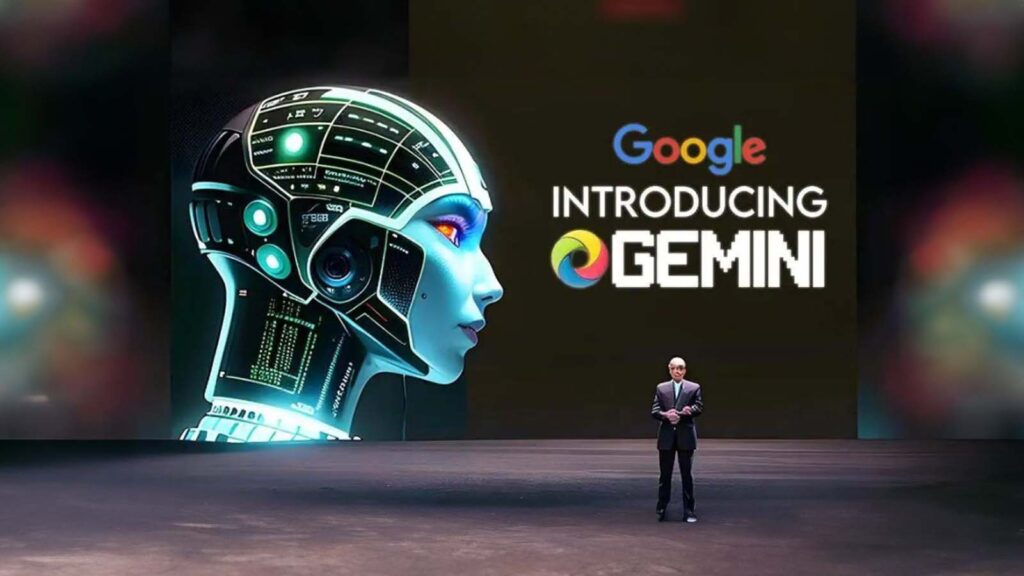Explore various aspects of Google’s Gemini launch, including its timeline, capabilities, advantages, and considerations. Dive deep into its features, compare it with alternative models, and anticipate future developments.
December 2023:
Announcement of Gemini Ultra: Google unveils Gemini, its most powerful AI model yet, with multimodal capabilities.
Launch of Gemini Pro: The initial version, comparable to GPT-3.5, becomes available to developers and enterprise customers through APIs.
February 2024:
Renaming to Bard: The free, public-facing version of Gemini is named Bard.
Introduction of Gemini Advanced: A premium subscription tier providing access to the most advanced Gemini Ultra model.
Capabilities of Gemini:
Multimodality: Gemini excels at understanding and processing information across various formats like text, code, audio, image, and video, enabling tasks such as generating creative text based on images or translating languages while considering context.
Generalization: Google claims Gemini can generalize learned patterns to new situations, potentially reducing the need for fine-tuning on specific tasks.
Improved Performance: Benchmarks suggest Gemini Ultra outperforms previous models, particularly in factual language understanding and generation.
Advantages over Previous Models:
Multimodal Capabilities: Gemini’s ability to handle multiple formats sets it apart from text-focused models like GPT-3, expanding its application possibilities.
Wider Accessibility: The free Bard version allows more users to experience Gemini’s capabilities compared to closed-access models.
Integration with Google Cloud: Developers can integrate Gemini with existing Google Cloud infrastructure, simplifying adoption.
Considerations:
Limited Public Access: Currently, only the Pro version is available through APIs, limiting widespread use.
Subscription Model: Access to the most advanced Ultra version requires a paid subscription, raising concerns about accessibility.
Newness and Unknowns: As a newly launched model, its long-term impact and real-world effectiveness are yet to be fully understood.
Diving Deeper into the Gemini Launch:
Specific Capabilities:
Text Formats: Can Gemini generate specific styles like poems or code? How extensive are its multilingual translation capabilities?
Information Processing: How does Gemini combine insights from different formats to generate content?
Comparisons to Other Models:
GPT-4: How does Gemini compare in terms of performance and accessibility?
Specialized Models: Are there areas where specialized models outperform Gemini?
Ethical Considerations:
How does Google address potential biases or misuse of Gemini’s capabilities?
Google Warning:
Google recently made waves in the tech world with a series of updates to its AI-driven chatbot, marking a significant shift from Bard to Gemini, along with the debut of an Android app and the introduction of the Ultra 1.0 language model. However, amidst the excitement, Google delivered a serious cautionary note to all Gemini users, urging them to exercise caution when sharing sensitive information with the chatbot.
A support document released by Google disclosed that certain conversations held with Gemini may undergo human review to “enhance quality and refine our offerings.” Although Google assures that only a “subset” of dialogues undergo this scrutiny, and any user-identifying details like email addresses or phone numbers are expunged beforehand.
Dated February 8, the support document emphasizes, “Please refrain from inputting confidential details or any data you wouldn’t wish a reviewer or Google to utilize for refining our products, services, and machine-learning algorithms.”
This move by Google raises questions about the balance between AI-driven innovation and user privacy. While the advancements in conversational AI are undoubtedly impressive, concerns about data privacy and security remain paramount. As technology continues to evolve, it becomes increasingly important for companies like Google to strike a delicate balance between innovation and protecting user privacy. Users, too, must remain vigilant and mindful of the information they share with AI-powered platforms, ensuring they exercise caution when divulging sensitive data.
Impact and Future Developments:
Real-World Applications: Explore examples of Gemini’s usage across industries.
Accessibility Concerns: How can Google ensure broader access to Gemini?
Future Improvements: What areas is Google focusing on for further development?
More news: BAPS Mandir Abu Dhabi Inaugurated by Narendra Modi

